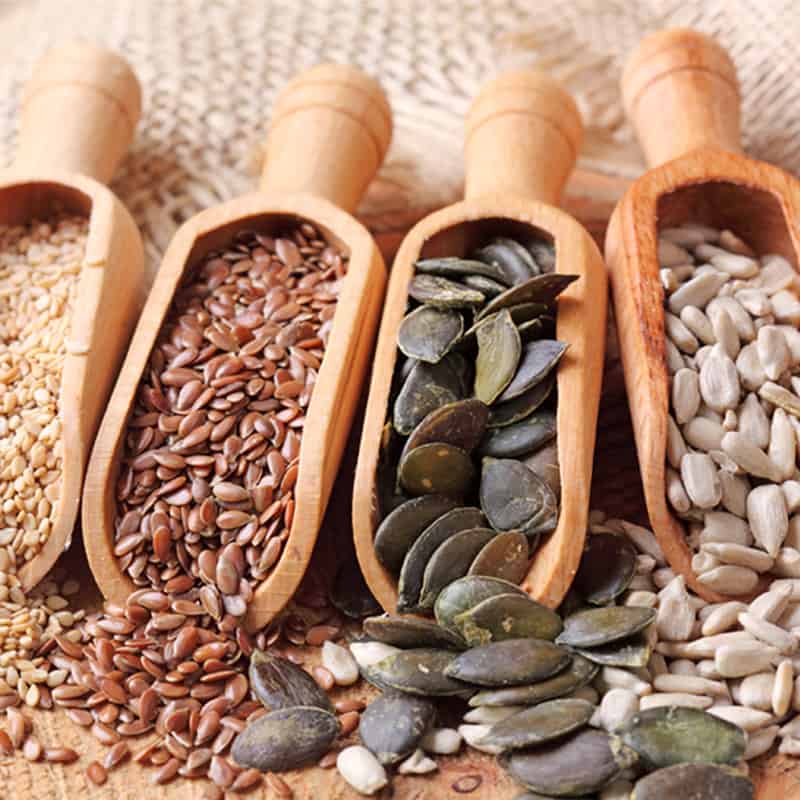Nutrient-dense seeds are a powerhouse of essential vitamins, minerals, and healthy fats. They offer a wide range of health benefits and can be a valuable addition to your diet. From chia seeds and flaxseeds to pumpkin and sunflower seeds, each variety brings its own unique set of nutrients to the table.
The Benefits of Nutrient-Dense Seeds
Nutrient-dense seeds are packed with fiber, protein, and healthy fats, making them an excellent choice for those looking to boost their overall nutritional intake. These seeds are also rich in essential vitamins and minerals such as vitamin E, magnesium, and omega-3 fatty acids.
Key Nutrient-dense Seeds And Their Benefits
Chia Seeds: These tiny seeds are loaded with omega-3 fatty acids, fiber, and antioxidants. They can help improve heart health and may promote better digestion.
Flaxseeds: Known for their high alpha-linolenic acid (ALA) content, flaxseeds are beneficial for heart health and may have anti-inflammatory properties.
Pumpkin Seeds: These seeds are a good source of magnesium, zinc, and plant-based protein. They may support immune function and promote better sleep.
Sunflower Seeds: Rich in vitamin E and selenium, sunflower seeds can help protect cells from damage and support thyroid function.

Credit: www.plantbiologic.com
Ways to Prepare Nutrient-Dense Seeds
Incorporating nutrient-dense seeds into your diet is easy. Here are a few simple and delicious ways to enjoy the benefits of these tiny nutritional powerhouses:
1. Add Them To Smoothies
Boost the nutritional profile of your favorite smoothie by adding a tablespoon of chia seeds, flaxseeds, or hemp seeds. These seeds will provide an extra dose of fiber, healthy fats, and protein to your refreshing drink.
2. Sprinkle Them On Yogurt Or Oatmeal
Enhance the texture and flavor of your morning yogurt or oatmeal by sprinkling a handful of pumpkin or sunflower seeds on top. This simple addition can elevate the nutritional value of your breakfast.
3. Use Them In Baking
Incorporate nutrient-dense seeds into your baking creations. Add flaxseeds or chia seeds to homemade granola bars, muffins, or bread for an extra nutrient boost and a delightful crunch.
4. Make Seed Butter
Just like nut butter, seed butter can be a delicious and nutritious spread. Blend roasted sunflower or pumpkin seeds with a touch of sweetener and a pinch of salt to create your very own seed butter.
5. Create Seed-based Snack Mixes
Combine a variety of seeds with nuts and dried fruits to make a nutrient-packed snack mix. It’s a convenient and satisfying option for on-the-go snacking.
Tips for Maximizing Nutrient Absorption
To ensure that you reap the full nutritional benefits of these seeds, keep the following tips in mind:
- Grind Flaxseeds: Since the outer shell of flaxseeds is difficult to digest, it’s best to grind them before consumption to enhance nutrient absorption.
- Soak Chia Seeds: Chia seeds have the ability to absorb a significant amount of liquid, which can aid in digestion. Soaking them before consuming can prevent potential digestive discomfort.
- Store Seeds Properly: Due to their high oil content, seeds can go rancid if not stored correctly. Keep them in airtight containers in a cool, dark place to maintain their freshness.

Credit: draxe.com
Frequently Asked Questions Of How To Prepare Nutrient-dense Seeds: Essential Tips For Maximizing Nutritional Value
How Do I Prepare Nutrient-dense Seeds?
To prepare nutrient-dense seeds, start by soaking them overnight, then rinse and drain. Next, spread the seeds on a baking sheet and roast in the oven until golden brown. Enjoy!
What Are The Benefits Of Eating Nutrient-dense Seeds?
Eating nutrient-dense seeds provides numerous benefits, such as increased energy, improved digestion, enhanced immune function, and optimal nutrient intake for overall health.
Which Seeds Are Considered Nutrient-dense?
Some of the most nutrient-dense seeds include chia seeds, flaxseeds, hemp seeds, pumpkin seeds, and sunflower seeds. These seeds are packed with essential vitamins, minerals, and healthy fats.
How Can I Incorporate Nutrient-dense Seeds Into My Diet?
There are various ways to incorporate nutrient-dense seeds into your diet. You can sprinkle them on salads, blend them into smoothies, add them to baked goods, or even use them as a topping for yogurt or oatmeal.
Conclusion
Nutrient-dense seeds are a convenient and versatile way to boost the nutritional content of your meals and snacks. Whether you sprinkle them on top of your morning cereal or blend them into your favorite smoothie, these tiny seeds can make a big difference in your overall health and well-being. With their rich array of nutrients and numerous health benefits, it’s clear that incorporating nutrient-dense seeds into your diet is a smart and delicious choice.